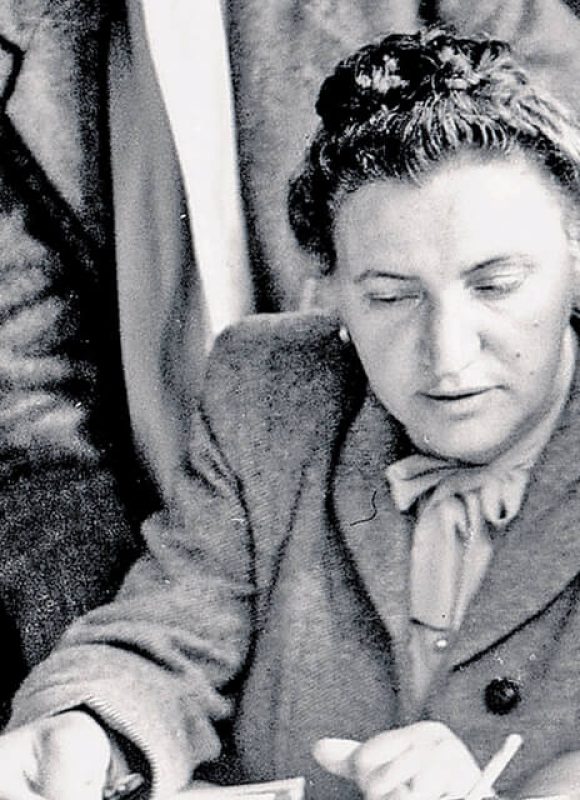PIONEER
Ray Alexander Simons

Unionist | Federation of South African Women founding member | Human rights activist
Born: 12 January 1914 Died: 12 September 2004
“Ray Alexander Simons, a champion of the working class and an outstanding fighter for the rights of women."
Who is
Ray Alexander Simons?
Trade union activist with leadership positions in the South African Communist Party (SACP) and the Food and Canning Worker’s union (FCWU), who participated in drafting the Women’s Charter.
Professions
and Roles
Author, trade unionist, secretary of the SACP, and founding member of the Federation of South African Women (FEDSAW) and South African Food and Canning Workers' Union (FCWU).
Best Known For
South African communist and trade unionist who helped draft the Women’s Charter.
Life highlights
- In 1929, Simons joined the SACP.
- After attending the founding conference of the Anti-Fascist League, she was dismissed from her job and became increasingly involved in trade union activity.
- In 1932, she became the secretary of the Commercial Employees’ Union in Cape Town, and later would become the full-time organiser of the Non-European Railway and Harbour Workers’ Union.
- From 1934, Simons served as the Secretary of the SACP. She was particularly involved with the FCWU, which she founded in 1941.
- Simons wrote regular columns on trade union matters in The Guardian, a newspaper affiliated to the SACP.
- In 1953, she was served with banning orders and forced to resign from her position as secretary-general of the FCWU.
- In 1954, together with Helen Joseph, Lilian Ngoyi and Florence Mkhize, she helped found FEDSAW and participated in drafting the pioneering Women’s Charter.
- Although her banning prevented her from attending the 1956 Women’s March, she was involved in its organisation and recruitment process.
- After another banning order in 1954, Simons was forced to resign from FEDSAW.
- In 1965, Simons and her husband moved to England. They moved to Lusaka in 1967 and were the first white people to be accepted into the ANC. They returned to South Africa in 1990.
- Simons then advised various trade unions as well as the ANC and SACP on her return.
- In 2004, the ANC’s National Executive Committee (NEC) bestowed its highest honour of Isithwalandwe (“the one who wears the plumes of the rare bird”) on Simons – she was the third woman to receive the award.
IN THE WORDS OF OTHERS
“Ray Alexander Simons, a champion of the working class and an outstanding fighter for the rights of women. A stalwart of the African National Congress, the South African Communist Party and the trade union movement, Ray Alexander Simons was earlier this year awarded Isithwalandwe, the ANC`s highest honour.
Ray Alexander Simons was involved in the liberation struggle from an early age, and remained committed throughout her life to the liberation of the South African people from all forms of oppression. The ANC joins all South Africans in paying tribute to a remarkable, dedicated and selfless individual. Her intellectual prowess, energy and organisational capacity will be sorely missed. She nevertheless remains an example and inspiration to all who must continue her work.”
– ANC official statement
“[Ray] lived a fulfilling and glorious life. She provided hope and restored the confidence of many whose lives have been made meaningless by apartheid. She was an outstanding communist, veteran trade unionist, matchless fighter for women’s liberation and a giant of non-racialism … She will be remembered as an outstanding fighter for the rights of women.”
– ANC Women’s League
